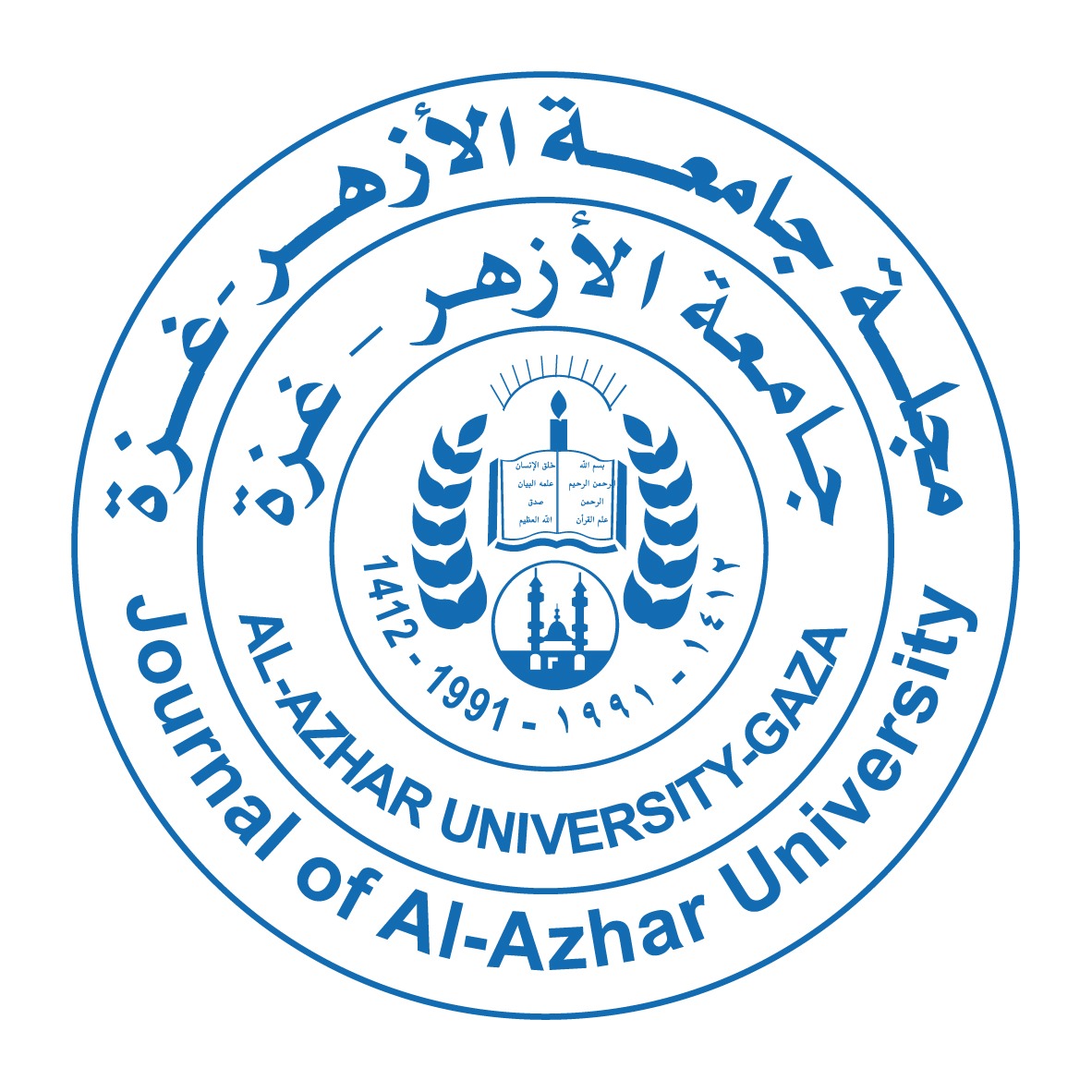Journal of Al-Azhar University – Gaza (Humanities)

Abstract
ملخص:
تهدف هذه الدراسة إلى وضع إطار مقترح لنظام الرقابة الداخلية للشركات الصناعية السعودية لصناعة الحديد التجاري طبقاً لمفهوم إدارة مخاطر المشروع ( ERM ) ومعايير الأيزو الدولية الخاصة بإدارة المخاطر في هذا الإطار وآلية مقترحة لتقويمه من قبل قسم المراجعة الداخلية، في ظل التحديات والمنافسات الشديدة التي تواجه عالم الأعمال نتيجة للتطور التقني والمعلوماتي السريع، مما يتوجب على منشآت الأعمال الإستجابة للمتغيرات من خلال تبني الأساليب الإدارية الحديثة التي تحد من آثار المخاطر وتفعيل دور نظام الرقابة الداخلية لكي يساعد في الكشف المبكر عن المخاطر والحد من النتائج السلبية المتوقعة. وجاءت هذة الدراسة لتتصدى للمشكلة التي تواجه منشآت الأعمال التي لا زالت تتبع الأساليب التقليدية في أنشطتها الرقابية، وعدم إلمام إداراتها والعاملين فيها بأهمية وجود إدارة للمخاطر ونظام رقابة داخلية يأخذ في الإعتبار هذه المخاطر واقتصار عمل المراجعين الداخليين على كشف المخالفات وعمليات الإحتيال والرقابة الروتينية للنشاط التشغيلي، في حين يتطلب إتباع آليات لتفعيل دور نظام الرقابة الداخلية لمواجهة التحديات من خلال قيام المراجعين الداخليين إعطاء ضمان على عمليات إدارة المخاطر وأن تقييم المخاطر يتم بشكل صحيح وتقويم عمليات إدارة المخاطر .
ولتحقيق أهداف الدراسة واختبار فرضيتها اعتمد الباحث على المنهج الاستقرائي للمعلومات التي تم الحصول عليها من عدة مصادر، والمنهج الوصفي التحليلي، كما استخدم الاستبيان كأداة رئيسة للدراسة والمقابلات الشخصية لجمع البيانات والمعلومات الصحيحة .
ومن أهم النتائج التي توصلت اليها هذه الدراسة: عدم توافر الأرضية الفكرية والفلسفية لإدارة المخاطر في شركات صناعة الحديد التجاري مع البطء في الوعي وثقافة المفاهيم وأساليب المخاطر. عدم وجود الكثير من الضوابط الرقابية ضمن عمليات التشغيل اليومي وعدم ملاءمة الضوابط الرقابية المستخدمة للتغيرات في الظروف الحالية .
كما خلصت هذه الدراسة إلى عدد من التوصيات أهمها: ضرورة إنشاء نظام رقابي يستند على مكونات إطار ERM وتحديد الخطوط الواضحة للمسئولية والمساءلة لجميع المستويات، ضرورة نشر ثقافة إدارة المخاطر داخل منشآت الأعمال، ضرورة الاعتماد على العنصر البشري باعتباره عنصراً مهماً في نظام الرقابة الداخلية .
Abstract:
This study aims to establish a proposed framework of internal control system of Saudi Companies for manufacturing commercial iron, according to the concept of enterprise risk management (ERM) with the recruitment of international ISO standards for the risk management in this context and proposed mechanism to evaluate the internal control system by the internal audit department. In light of challenges and intense competition who faces the business world as a result of the rapid evolution of technical and informational organizations had to respond to variables through the adoption of modern management techniques that reduce the effects of risks and activating the role of the internal control system in order to contribute to the early detection of risks and reduce the negative results expected. This study is to address the problem faced by organizations which still follow the traditional methods in the control activities, and the lack of knowledge of the management and their staff of the importance of the existence of risk management and internal control system takes into account these risks, and the limiting of work of the internal auditors to detect irregularities, fraud, and routine control for operational activity. While that requires a mechanisms to activate the role of the internal control system to face the challenges through the internal auditors to give assurance on risk management processes, risk assessment being properly done, and evaluate the risk management processes.
In order to achieve the objectives of the study and hypotheses, the methodology adopted by the researcher is analytical and descriptive, using the questionnaire, interviews and personal observation as main tools for collecting the relevant data and information.
The main findings of this study are: lack of intellectual and philosophical ground for risk management in the commercial steel industry in Jeddah, with slow awareness and culture of concepts and risk methods, lack of control controls in daily operations for change in current circumstances.
The study also concluded a number of recommendations, the most important of which are: The need to establish a regulatory system based on the components of the ERM framework and to define clear lines of responsibility and accountability at all levels. The need to spread risk management culture within business enterprises. The need to rely on the human element as an important factor in the internal control system.
الكلمات المفتاحية: الأطر والمعايير الحديثة، تقويم نظام الرقابة الداخلية، الشركات السعودية لصناعة الحديد التجاري.
Recommended Citation
الفرا, عبدالشكور عبدالرحمن استاذ مشارك
(2018)
"قياس فاعلية الأطر والمعايير الحديثة في تقويم نظام الرقابة الداخلية دراسة تطبيقية على شركات صناعة الحديد التجاري في مدينة جده المملكة العربية السعودية,"
Journal of Al-Azhar University – Gaza (Humanities): Vol. 20:
Iss.
1, Article 1.
Available at:
https://digitalcommons.aaru.edu.jo/alazhar/vol20/iss1/1

